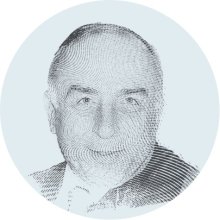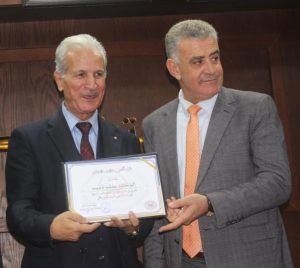An Arab writer from Lebanon, he began working at the newspaper “An-Nahar” and has been writing his daily column in “Asharq Al-Awsat” since 1987. He spent nearly four decades in Paris, London, and North America. He has authored works in novels, history, and travel; including “The Ink Caravan,” “Generals of the East,” “Yumna,” and “New Year’s Eve on the Island of Dos Santos.” In mourning Sanallah Ibrahim, comrades and critics focus more on his personal virtues than on his literary or narrative legacy. Everyone remembers without exception that he spent five years in prison. The strange phenomenon in Egypt’s history is that the “Free Officers” simply began imprisoning many intellectuals and writers, subjecting them to the humiliation of prison cells. From Ihsan Abdel Quddous to Mustafa Amin to Mohamed Hassanein Heikal.
When President Hosni Mubarak announced that punishing journalists with imprisonment had ended, the numbers had already reached figures unbefitting journalism or Egypt. In any case, the decision, which included the largest number of detainees during President Sadat’s era, was never implemented. For Sadat, it was not a matter of opposition and opponents, but survival or extinction. The war for survival began from the first moment. Many of Nasser’s comrades opposed Sadat’s succession, especially leftists like Ali Sabri and others called “power centers.” After the first battle, Sadat fought the battle of going to Jerusalem and Camp David, which was no less difficult. Here the battle was not only with opponents but also with comrades who resigned or refused assignments. Disagreements were expected in a difficult transitional phase, with sharp conflicts and a “live or die” struggle. But nothing justified throwing writers into prisons.
This is Egypt, after all. One understands why Europe and Arab capitals are full of opponents and exiles, like the witty Sheikh Mahmoud Al-Saadani. Prisons are for criminals, not for opinion holders, especially those who build Egypt’s reputation and status. Sanallah Ibrahim died, and people imagine him in prison clothes, which he proudly refused to take off. He continued creative writing as if he had never been imprisoned and completed his mission as he completed his sentence. When they tried to honor him, he refused. He writes about people’s lives and their freedom. Prisons are a passing mistake.













Recommended for you
Exhibition City Completes About 80% of Preparations for the Damascus International Fair Launch
Talib Al-Rifai Chronicles Kuwaiti Art Heritage in "Doukhi.. Tasaseem Al-Saba"
Unified Admission Applications Start Tuesday with 640 Students to be Accepted in Medicine
Egypt Post: We Have Over 10 Million Customers in Savings Accounts and Offer Daily, Monthly, and Annual Returns
His Highness Sheikh Isa bin Salman bin Hamad Al Khalifa Receives the United States Ambassador to the Kingdom of Bahrain
Al-Jaghbeer: The Industrial Sector Leads Economic Growth